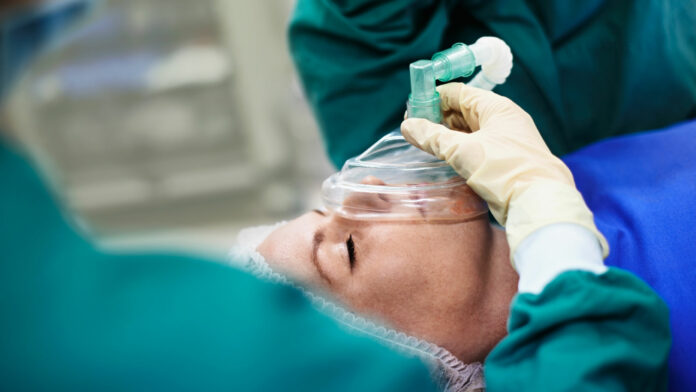You wake up in the ward and you try to recollect how everything was just before anesthesia took over. You struggle to recall what all happened, and the next thing that comes to your mind is: “Will I be okay? What do I need to do?” You will go through the recovery process and you may wonder what medical supplies or procedures you need. Your body is still under the effects of anesthesia, so it cannot work properly yet. And you — most likely — don’t feel well. Sounds scary? Yes, for sure. Is it a real reason to be afraid, though? No. And here’s why.
Why Do You Not Feel Well After Anesthesia
Not feeling well isn’t always a medical problem. It’s a medical thing, but it’s not a problem, to be precise. The reason is — your body is trying to get back on track with normal functions after a hardcore stress.
Every surgical procedure is a major stress for your body. Even if the doctors and anesthesiologists did their job well — you still can feel a lot of uncomfortable things.
Anesthesia hits all systems in your body hard. Especially the nervous system, respiratory system and circulatory system. And you can feel it. It is not something you should be afraid of. It will pass soon. You are going to feel way better soon. And you will be able to get back on track as soon as possible.
Here are the top-5 things people feel after an operation most often:
- Nausea and vomiting;
- Pain;
- Swelling;
- Trouble sleeping;
- Trouble breathing normally.
Nausea After Operation
The first thing that comes to your mind after an operation is: “Is it normal to feel nauseous?” Yes, it’s normal. You are not the only one. There are many people who get nauseous after any surgery. And no, it isn’t a bad sign! It’s just — your body is still recovering from anesthesia and stress.
The causes that may cause nausea and vomiting include:
- Stress;
- Dehydration;
- Medications.
When you feel nauseous, the first thing to deal with is — the dehydration! Have some water, soda or juice and a little cracker or a cookie. You should have some light food in the first 24 hours after surgery, but it’s totally fine to take something sugary if you feel like eating something stronger than crackers (stay away from fat-heavy foods). If the nausea goes away, but you’re still feeling queasy, ask your doctor about medications. There are many that help with nausea and vomiting. After surgery, they may not be an option if they are causing other side effects (fast heart rate and dizziness).
Pain After Operation
Yes, unfortunately — you’ll be in pain after any operation, most likely — and you just have to deal with it. The pain is there because your body needs to recover from anesthesia. You will feel it until the anesthesia wears off. And yes, it’s okay. Don’t worry — all of them will pass soon. And you will feel way better soon.
This list is really extensive, so when the pain starts, don’t be afraid to ask your doctor about the causes of it. There are many prescription drugs that help with pain in various ways, and the nurse is — most likely — allowed to give some to you if you say that pain is unbearable.
All sorts of pain can be normal after an operation:
Pain in the surgical intrusion area — simply because the tissues were damaged;
- Headaches — because you’re dehydrated, stressed, and your mind is still trying to get itself back together after anesthesia;
- Pain and numbness in your arms or legs — because you probably spent too much time on the surgical table without the normal blood circulation;
- Unusual pain in your stomach — because your digestive system is also affected by anesthesia.
Swelling After Operation
You may notice a lot of swelling in the surgical areas after the operation. It’s normal. Your body is trying to fight off infection, inflammation and abnormal ways of functioning in the tissues by fluid accumulation. It’s normal to see swelling even days after the operation is over. Swelling leaves your body on its own — but it will pass soon!
One of the best ways to keep swelling down is to move your body as little as possible for about 24 hours. All movements may cause damage to surgical incisions and increase the swelling. If movement is inevitable, try not to move and stretch the area too much. Also, ask your doctor about the medications that help with reducing swelling!
Trouble Sleeping After Operation
Yes, unfortunately you’ll have trouble sleeping after any operation — due to pain and stress. Your body will start working normally again in a few days — and then you’ll be able to sleep normally once again. Try to sleep as much as possible in the first 48 hours after the operation. This is better than sleeping too little, because your body will try to push out all toxins. You’ll be able to sleep more in a few days — feel way better soon!
It’s also normal to get a lot of pain while you sleep. The pain is always there, while you sleep and while you move around.
Trouble Breathing Normally After Operation
Yes, this is a big one. Many people note that they can’t breathe properly after an operation — and it’s true. You will feel this sensation until the anesthesia wears off. And you may also have trouble sleeping for the reason of feeling short of breath, too!
If you are having trouble breathing, ask your doctor about it. In some cases, you might need actual oxygen from a tube. If that’s the case, don’t worry! Ask for it.
You can always breathe slowly and deeply, in order to get more air into your lungs. Or — just take a few slow, deep breaths and try to relax to a normal breathing rhythm.
Final Word
After surgery, you will feel tired, scared, but also excited! It’s totally normal. Just take it easy and rest as much as possible until you are feeling better — have a speedy recovery!

















